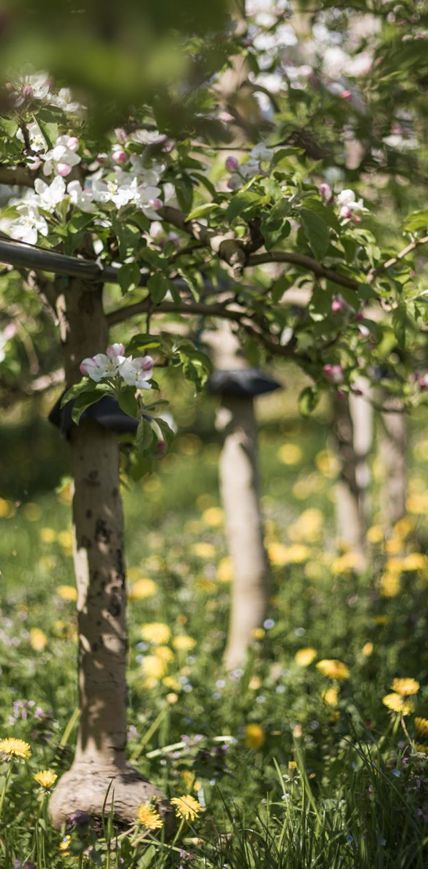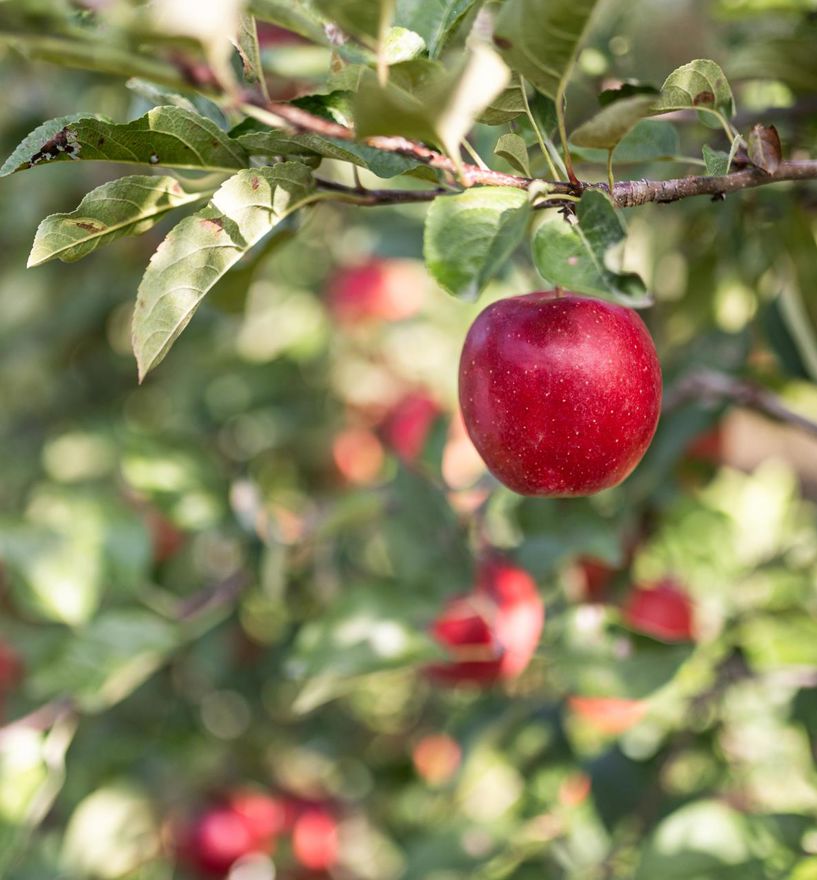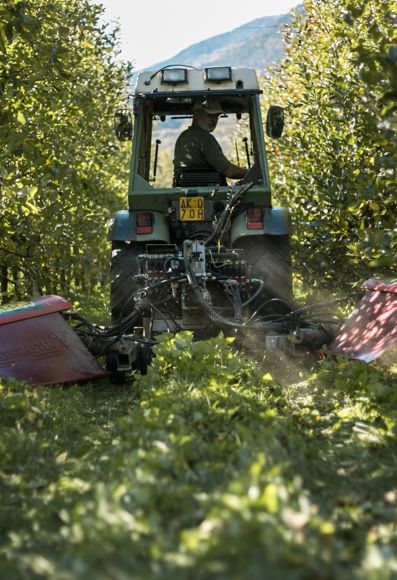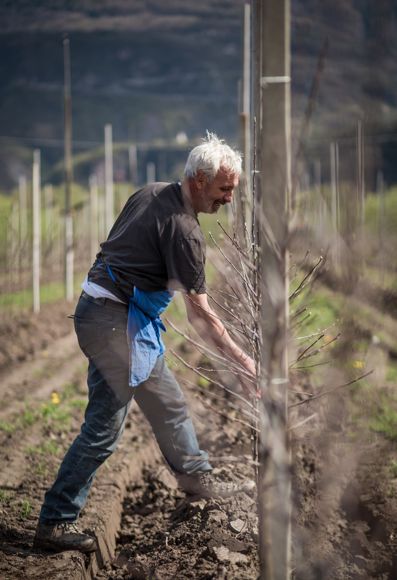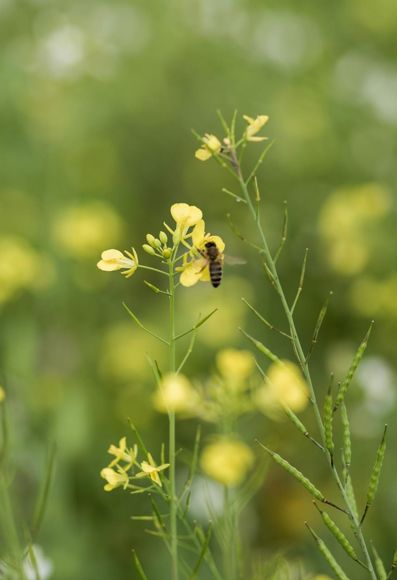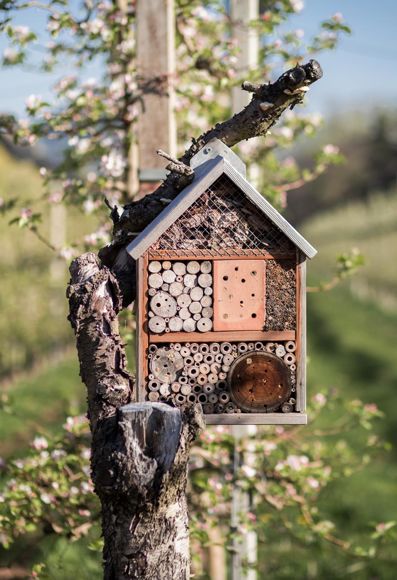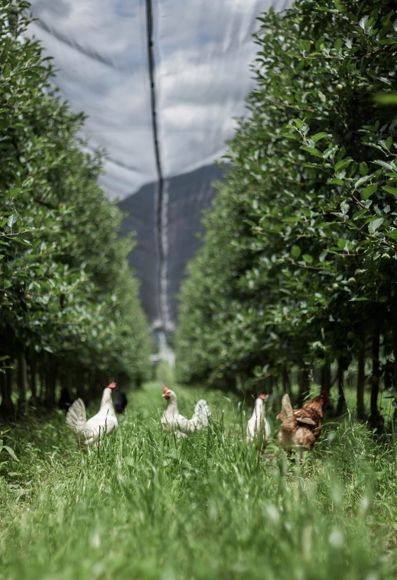Instead of chemically synthetic crop protection products and synthetic fertilizers, we use only plant protection based on natural substances and organic fertilizers. Exclusively and without compromise. Organic apple cultivation in South Tyrol in harmony with nature.
Naturally, there are different approaches within organic farming as well. For example, we distinguish between biodynamic and organic-biological apple cultivation.
In biodynamic farming, based on the principles of Rudolf Steiner, soil, animals, and humans work together in a natural agricultural cycle. Every measure is evaluated as part of the overall ecosystem – even the influence of celestial bodies is considered.
Organic-biological farming, on the other hand, focuses on sustainably managing the ecosystem and aims to minimize external influences. Different approaches – with one shared goal: to strengthen, not disturb, nature’s delicate balance. For the next generation. And the one after that.


